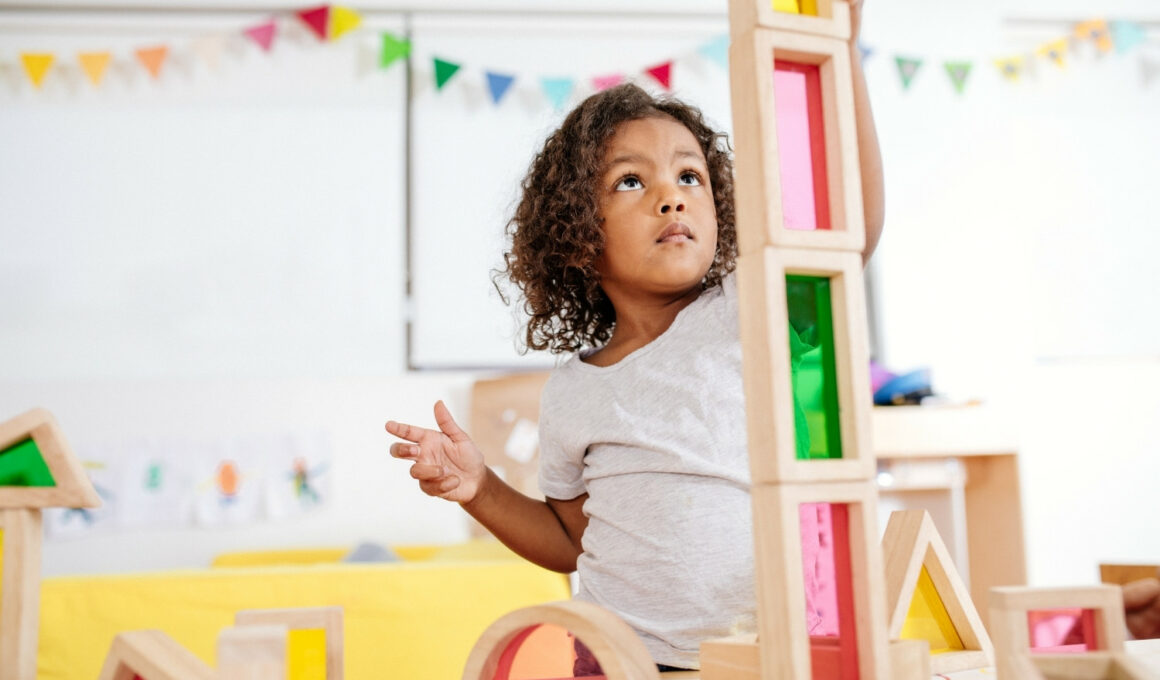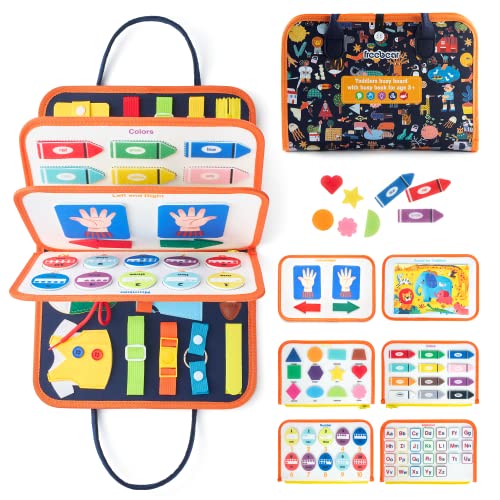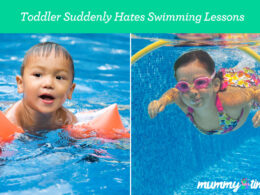In This Article Show
Welcome to our journey into the fascinating world of toddler cognitive development! As a mom of three, I’ve navigated the highs and lows of parenting, continuously amazed by how tiny minds grow and learn.
As parents, we play a pivotal role in nurturing this development. The activities we choose can significantly impact their cognitive growth.
However, it’s not about complex or expensive toys. It’s about meaningful interactions and experiences that stimulate their curiosity and understanding of the world.
In this post, “6 Engaging Activities to Boost Your Toddler’s Cognitive Development,” we’ll explore simple yet effective activities that you can easily incorporate into your daily routine.
6 Engaging Activities to Boost Your Toddler’s Cognitive Development
So, let’s embark on this exciting journey together, discovering creative and enjoyable ways to enhance your toddler’s cognitive development. Remember, every little interaction counts, and the memories you create now will last a lifetime.
1. Exploring the World Through the Five Senses
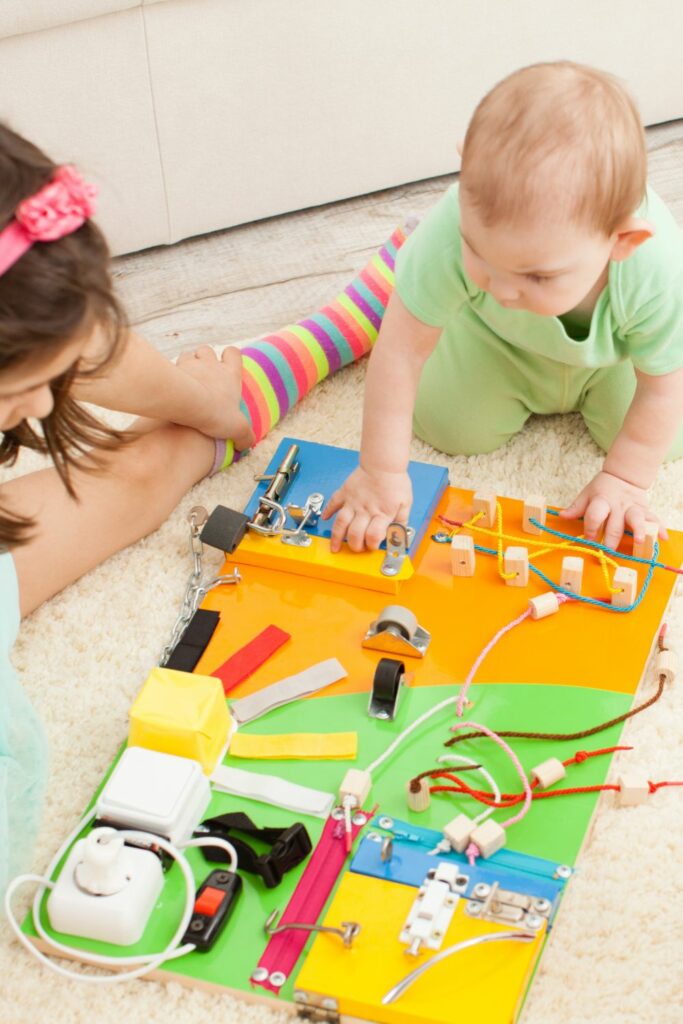
Sensory play is a powerful and delightful way for toddlers to explore their world. It involves activities that stimulate any of the five senses – sight, sound, touch, taste, and smell. This kind of play is not just fun; it’s a critical part of early childhood development.
Great deals to snatch for your little ones 🎉
When toddlers engage in sensory play, they’re doing more than just touching, tasting or smelling. They’re building nerve connections in the brain’s pathways. This leads to an ability to complete more complex learning tasks and supports cognitive growth, language development, gross motor skills, social interaction, and problem-solving skills.
Furthermore, sensory play helps in developing and enhancing memory and is also a great way to calm an anxious or frustrated child. It encourages discovery and exploration, which is the natural approach of toddlers to learning.
2. Fun with Shapes and Colors
Shapes and colors are fundamental elements of our world, and recognizing them is a key milestone in a toddler’s cognitive development. This learning aspect is much more than just naming colors and shapes; it’s about understanding the world around them.
Moreover, playing with shapes and colors enhances critical thinking and problem-solving skills. For instance, when a child figures out how to fit a square block into a square hole, they are solving a problem through trial and error. This process helps in developing their reasoning skills and cognitive flexibility.
3. A Gateway to Imagination
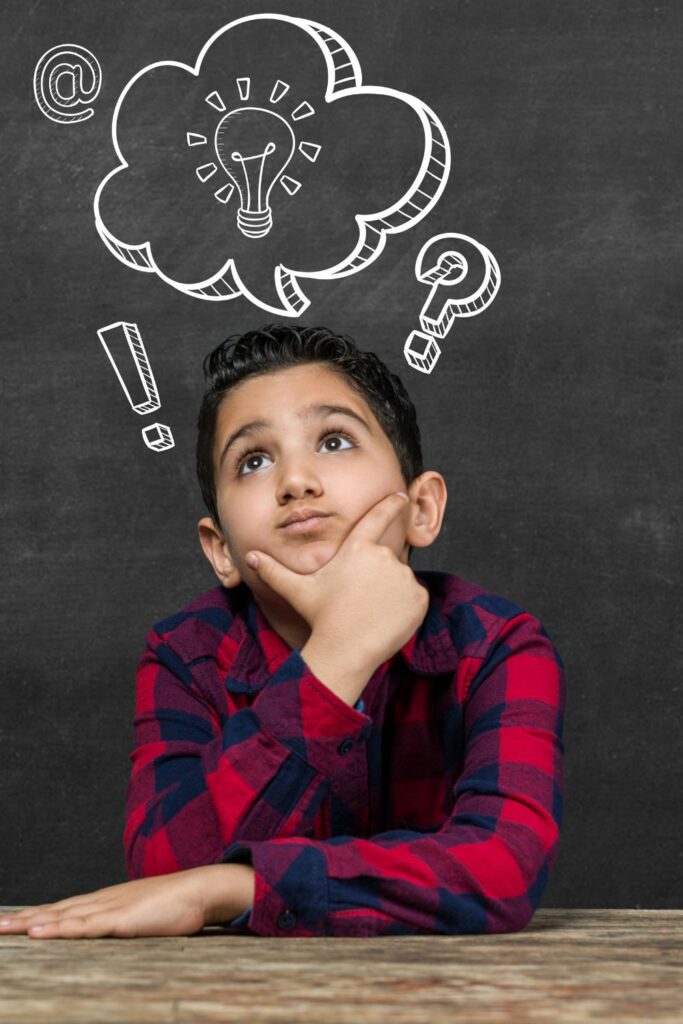
Storytelling and reading are magical gateways to the world of imagination for toddlers, playing an essential role in their language development. These activities are much more than just fun times; they are vital tools in building foundational language skills.
When you read a story or tell a tale to a child, you expose them to rich language, new vocabulary, and varied sentence structures, which are crucial for developing their speech and language skills. This exposure helps them understand how language works and assists in building their own communication skills.
4. Harmonizing Mind and Body
Music and movement activities are a joyful and effective way to enhance both cognitive and motor skills in toddlers. These activities go hand in hand, offering a holistic approach to early childhood development.
When music is combined with movement, it not only stimulates cognitive skills but also supports the development of motor skills. Engaging in actions like clapping, dancing, and moving to the rhythm helps in the development of gross motor skills, which involve large movements of the body.
Moreover, music and movement activities can improve coordination and balance, and even encourage spatial awareness. As children move to music, they learn about their bodies in space and how to navigate around others, which are important skills for everyday tasks.
5. Enhancing Problem-Solving Skills
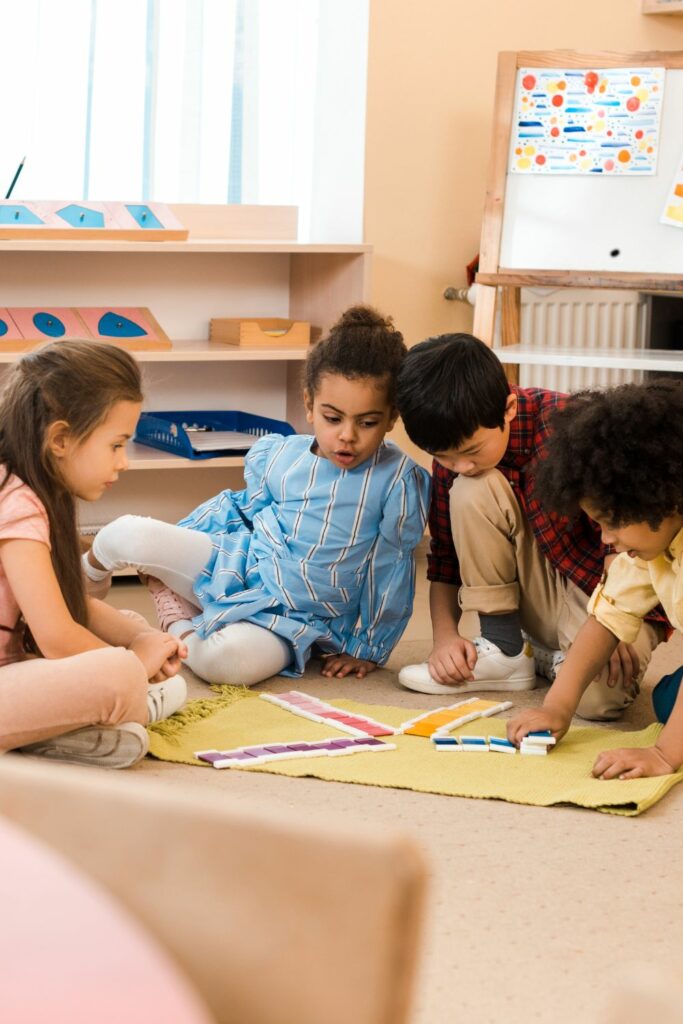
Puzzles are an excellent tool for developing a toddler’s logical thinking and problem-solving skills. Engaging with puzzles requires a child to use reasoning and critical thinking, essential elements in cognitive development.
When toddlers work on puzzles, they learn the process of identifying a problem and thinking through the steps to solve it. This involves recognizing patterns, understanding cause and effect, and employing a trial-and-error method.
Moreover, puzzles teach young children about persistence and patience. They learn to focus on a task and work on it until completion, which is a valuable skill for academic and everyday challenges.
6. Learning From the Environment
Nature exploration is an enriching and vital aspect of a child’s development, offering endless opportunities to enhance exploration and observation skills. When toddlers engage with the natural environment, they learn in the most organic and intuitive way.
Stepping into nature, children are naturally inclined to explore and investigate. This exploration fosters curiosity and a sense of wonder. As they observe different elements like leaves, rocks, insects, and birds, they develop key observation skills.
The sensory experiences in nature also play a significant role. The diverse textures, sounds, colors, and smells in the outdoors stimulate all the senses, providing a rich learning environment. This sensory input is crucial for cognitive development and helps build neural connections in the brain.






